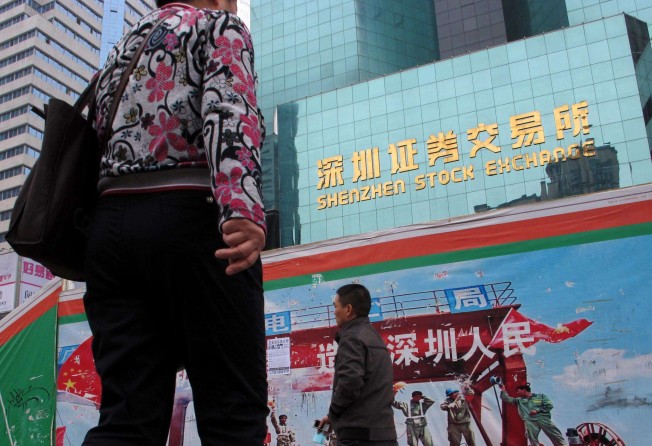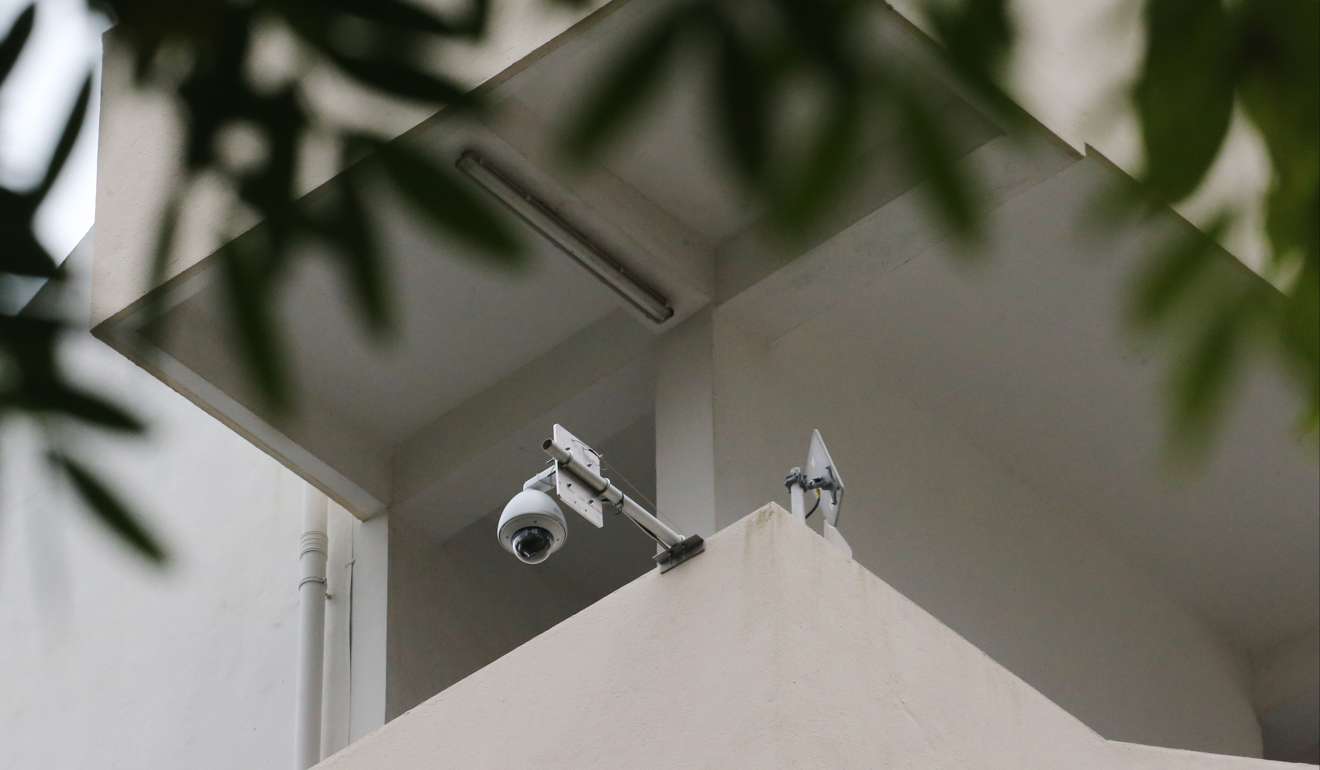Hangzhou Hikvision emerges as foreign investor favourite after mainlanders dump the stock
Surveillance equipment market leader is among the most-favoured stocks by foreign investors trading via Hong Kong-Shenzhen connect

What is considered poison for mainland Chinese stock investors is seen as a delicacy by their foreign peers when it comes to shares of the country’s largest maker of surveillance equipment.
New regulatory filings by Hangzhou Hikvision Digital Technology show that it currently has no mainland-based money managers among its 10 biggest shareholders. However, the Shenzhen-listed maker of video surveillance equipment has emerged as a favourite for foreign investors trading through the Shenzhen-Hong Kong exchange link. Overseas investors had acquired a combined 4 per cent of the company through the link as of April 3, the second highest for any Shenzhen-Hong Kong connect stock, according to data from Hong Kong Exchanges and Clearing.
The Hangzhou-based company supplies surveillance equipment used in public places such as airports and schools, with sales almost three times more than those of its next biggest domestic rival. Though earnings growth almost halved over the past two years, Hikvision has posted profit increases every year since it listed on Shenzhen’s board for small and medium-size enterprises in 2010. The stock has advanced 34 per cent this year, compared with a 5.4 per cent gain for the benchmark Shanghai Composite Index.
“Overseas investors will pay a premium for leading companies in their industries. They want a secure outlook, stable profit margins and good liquidity for easier buying and selling,” said Dai Ming, a fund manager at Hengsheng Asset Management. “Domestic investors like growth stories better and Hikvision is already past its high-growth period, so they see the company as more of a blue chip and don’t give high valuations to such a big-cap stock.”
Dai does not own any Hikvision shares but holds the stock of its main rival, Zhejiang Dahua Technology.
Hikvision’s latest quarterly report showed UBS Group and Morgan Stanley were its sixth and ninth largest shareholders respectively at the end of September.
Both investors declined to comment when contacted by the South China Morning Post.
Hikvision’s 2016 results are due out next week.
Foreign investors now have wider access to mainland stocks after policymakers introduced the so-called stock connect schemes with the Hong Kong exchange, which allows them to directly buy a number of selected stocks on the Shanghai and Shenzhen bourses through the Hong Kong exchange.
That added to the existing qualified foreign institutional investor programme through which overseas investors need to apply to regulators for licences and yuan quotas before making mainland investments.
Through the stock links, overseas investors hold yuan-denominated shares worth about 240 billion yuan (US$34.8 billion), representing 0.5 per cent of the total market capitalisation of the mainland’s stock markets.
Hikvision held a 27 per cent share of the domestic surveillance equipment market in 2016, followed by Dahua with 9 per cent, according to estimates by Dongxing Securities. Hikvision’s market capitalisation stands at 196.3 billion yuan, quadruple that of its rival, and its earnings are almost five times more. The firm has more than 18,000 employees and 40 subsidiaries globally, according to its website.

“The company is already very big,” said Cai Jingyan, an analyst at Huajin Securities. “You cannot expect it to grow as fast as before. It’s just like China’s economy.”
The stock is valued at 21 times projected earnings for this year, compared with 19 times for Dahua.
A Hikvision representative could not be reached for comment at the time of publication.
Dongxing expects growth in the mainland’s surveillance equipment industry to slow to 15 per cent in the next three years from 20 per cent after the value of the sector’s output has already jumped sevenfold over the past 10 years.
Mainland mutual fund managers have begun to retreat as Hikvision’s top 10 shareholders since the second half of 2014, a year before the slowdown in its earnings growth, according to the company’s filings to the Shenzhen exchange.
Mainland investors have a tradition of preferring smaller companies in the belief that earnings will grow fast enough to support higher valuations. Even after a bubble burst in the broader stock market in 2015, the valuation of the ChiNext small-cap firms was still almost four times the multiple of the Shanghai Composite Index.
Wang Ruizhe, an analyst at Capital Securities, said Hikvision was a safe and long-term bet for overseas investors. “What they like about the company is its stability and safety so they buy it for long-term allocations,” Wang said. “There’s no problem for it to achieve a 20 per cent growth rate in the following years.”